
Parallel Lines is the third studio album by American rock band Blondie, released in September 1978, by Chrysalis Records to international commercial success. The album reached No. 1 in the United Kingdom in February 1979 and proved to be the band's commercial breakthrough in the United States, where it reached No. 6 in April 1979. In Billboard magazine, Parallel Lines was listed at No. 9 in the top pop albums year-end chart of 1979. The album spawned several successful singles, notably the international hit "Heart of Glass".
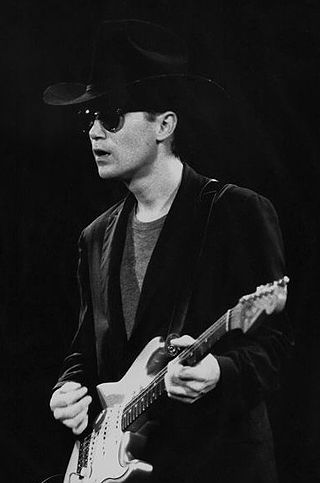
Marshall Howard Crenshaw is an American musician, singer, songwriter, and guitarist best known for hit songs such as "Someday, Someway," a US top 40 hit in 1982, "Cynical Girl," and "Whenever You're on My Mind." He is also the co-author of one of the biggest radio hits of the 1990s, the Gin Blossoms's "Til I Hear It from You." His music has roots in classic soul music and Buddy Holly, to whom Crenshaw was often compared in the early days of his career, and whom he portrayed in the 1987 film La Bamba.
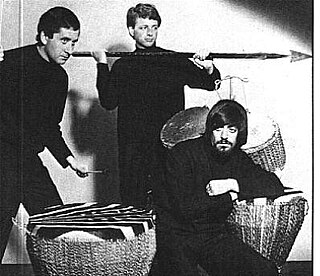
The Strangeloves were a band created in 1964 by the New York-based American songwriting and production team of Bob Feldman, Jerry Goldstein, and Richard Gottehrer. They initially pretended to be from Australia. The Strangeloves' most successful singles were "I Want Candy," "Cara-Lin", and "Night Time".
Richard Gottehrer is an American songwriter, record producer and record label executive. In 1997, he co-founded The Orchard with longtime business partner Scott Cohen, an independent music distribution company. His career began as a Brill Building songwriter in the 1960s. His first number one record as a songwriter and producer was "My Boyfriend's Back" by the Angels, followed by other hits like "Hang On Sloopy" by the McCoys and "I Want Candy" by the Strangeloves, of which the latter Gottehrer was a member. In 1966, he formed Sire Records with Seymour Stein, which played a crucial role in the rise of new wave, and went on to launch the careers of Blondie, Madonna, Ramones and Talking Heads. His career continued as producer for the Go-Go's' 1981 debut album, Dr. Feelgood, Richard Hell, the Bongos and Moonpools & Caterpillars' first release with a major label, 1995's Lucky Dumpling. In 2013, the Orchard was described as "the biggest digital music distributor on the planet".
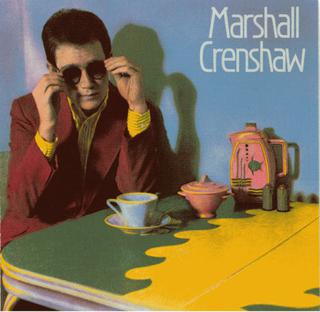
Marshall Crenshaw is the debut studio album by American musician Marshall Crenshaw. It was released on April 28, 1982, by Warner Bros. Records. Crenshaw, a performer in the musical Beatlemania, had begun to write songs for the album while staying in New York. The album was recorded with his backing band and producer Richard Gottehrer, engineer Thom Panunzio, and second engineer Jim Ball.

"Is She Really Going Out with Him?" is a song written and performed by British musician Joe Jackson. It was released in October 1978 as his debut single and was later included on Jackson's debut album, Look Sharp! The track was one of the first Jackson recorded with his new backing band, a band he would perform with for his first three albums. Written as a humorous commentary on women dating unattractive men, the song contains a prominent bass line and a chorus praised by critics as memorable. Jackson has since stated that the song's reputation for being angry was untrue.

"You're My Favorite Waste of Time" is a song written and first released by American singer Marshall Crenshaw. His 1979 home demo of the song was released as the B-side of his 1982 hit "Someday, Someway" and is available on his compilations The 9 Volt Years and This Is Easy: The Best of Marshall Crenshaw.
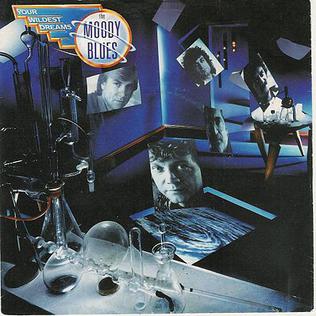
"Your Wildest Dreams" is a 1986 single by the progressive rock band the Moody Blues, written by Justin Hayward. The song was first released as a single, and later released on the Moody Blues' 1986 album The Other Side of Life.

"Til I Hear It from You" is a song by the Gin Blossoms that was released as the lead single from the soundtrack to the film Empire Records in July 1995. It topped the Canadian RPM Top Singles chart for six weeks, rose to number eight in Iceland, and reached number 39 in the United Kingdom. In January 1996, it was re-released as a double-A side with "Follow You Down" in the United States, peaking at number nine on the Billboard Hot 100. Billboard described "Til I Hear It from You" as "the closest thing to a perfect pop song to hit radio in recent memory" lauding its "breezy and wonderfully infectious melody, the boy-needs-girl lyrics, and the earnest execution."

Field Day is the second album by American rock musician Marshall Crenshaw. Recorded quickly after the moderate success of his self-titled debut album, Field Day featured a change in style and production after Crenshaw switched producers from Richard Gottehrer to Steve Lillywhite. The recording of the album was remembered positively by Crenshaw as was the album's sound.

"I Hate Boys" is a song recorded by American recording artist Christina Aguilera for her sixth studio album, Bionic (2010). The song was written by Aguilera, Ester Dean, William Tyler, Bill Wellings, J. J. Hunter and Jamal Jones, who also handled the production of the track. "I Hate Boys" is a glam rock, pop and electropop song, containing elements of urban pop and synth-pop. Lyrically, it is a hate-driven song about ridiculing all boys.

"Some Hearts" is a song written by Diane Warren. The track was originally written for Belinda Carlisle, who recorded it as a demo for her 1987 Heaven on Earth album, but it was not included on the album. It was released as a single by Marshall Crenshaw from his 1989 album, Good Evening, but it failed to chart. Singers that have covered the song include Kelly Levesque, featured in the 2001 film America's Sweethearts, Maria Arredondo for her 2004 album Not Going Under, and Carrie Underwood for her debut album of the same name.
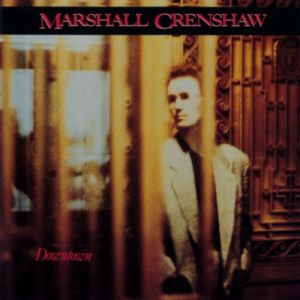
Downtown is the third album by singer/songwriter Marshall Crenshaw. Recorded after the relative failure of his album Field Day, Downtown was a departure from his previous albums due to its more rootsy sound.

Mary Jean & 9 Others is the fourth album by singer-songwriter Marshall Crenshaw. The album was produced by Don Dixon and features a return to the sounds of Crenshaw's earlier work after the country rock excursion of his previous album, Downtown.

"Someday, Someway" is a 1982 song by American rock musician Marshall Crenshaw. The song was released on his 1982 debut album, Marshall Crenshaw.

"Whenever You're on My Mind" is a 1983 song by American rock musician Marshall Crenshaw. The song was released on his 1983 album Field Day. The song, notable for its booming production, originally was written during the making of Crenshaw's debut album but was saved for his second album release. Crenshaw felt the song was his best to date, and the song was released as Field Day's first single.
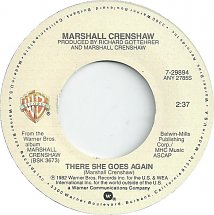
"There She Goes Again" is a 1982 song by American rock musician Marshall Crenshaw. The song was released on his 1982 debut album, Marshall Crenshaw. Lyrically, the song was written about seeing a girl from one's window as she passes by in a car, an image that Crenshaw later said was inspired by his youth.
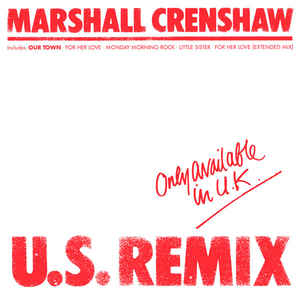
"Our Town" is a 1983 song by American rock musician Marshall Crenshaw. The song was released on his 1983 album Field Day. Written as an ode to Crenshaw's hometown at the time, New York City, the song features a melody inspired by Babs Cooper's version of "Honest I Do," a record that Crenshaw had heard in his childhood.
"Mary Anne" is a 1982 song by American rock musician Marshall Crenshaw. The song was released on his 1982 debut album, Marshall Crenshaw. Written from the perspective of trying to console someone, the song's title was not based on a specific girl. The song's hook was described by Crenshaw as going for a "hypnotic" effect and the song features layered 12-string guitar parts.

"Blues Is King" is a 1985 song by American rock musician Marshall Crenshaw. The song was released on his 1985 album Downtown. Originally written as an instrumental titled "Bruce Is King," the song features lyrics inspired by the B.B. King album Blues Is King.


















